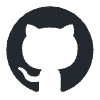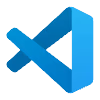How to Launch Your Freelance Coding Career: A Beginner's Guide

How to Launch Your Freelance Coding Career: A Beginner's Guide
Understanding the Freelance Coding Landscape
Pros of Freelance Coding
Cons and Challenges for Beginners
Essential Skills for Aspiring Freelance Coders
Technical Skills to Master
Soft Skills That Make a Difference
Building Your Freelance Coding Portfolio
What to Include in Your Portfolio
Platforms for Showcasing Your Work
Gaining Experience Without Paid Projects
Setting Up Your Freelance Business
Legal and Administrative Steps
Financial Planning for Beginners
Essential Tools for Freelance Coders
Finding Your First Freelance Coding Clients
Networking Strategies
Crafting Your Pitch and Proposals
Developing an Online Presence
Conclusion
References
How to Launch Your Freelance Coding Career: A Beginner's Guide
Understanding the Freelance Coding Landscape
Pros of Freelance Coding
Cons and Challenges for Beginners
Essential Skills for Aspiring Freelance Coders
Technical Skills to Master
Soft Skills That Make a Difference
Building Your Freelance Coding Portfolio
What to Include in Your Portfolio
Platforms for Showcasing Your Work
Gaining Experience Without Paid Projects
Setting Up Your Freelance Business
Legal and Administrative Steps
Financial Planning for Beginners
Essential Tools for Freelance Coders
Finding Your First Freelance Coding Clients
Networking Strategies
Crafting Your Pitch and Proposals
Developing an Online Presence
Conclusion
References
Posted Jun 11, 2025
Ready to start your freelance coding journey? Our beginner's guide covers essential skills, portfolio building, and finding your first projects. Kickstart your career today!





